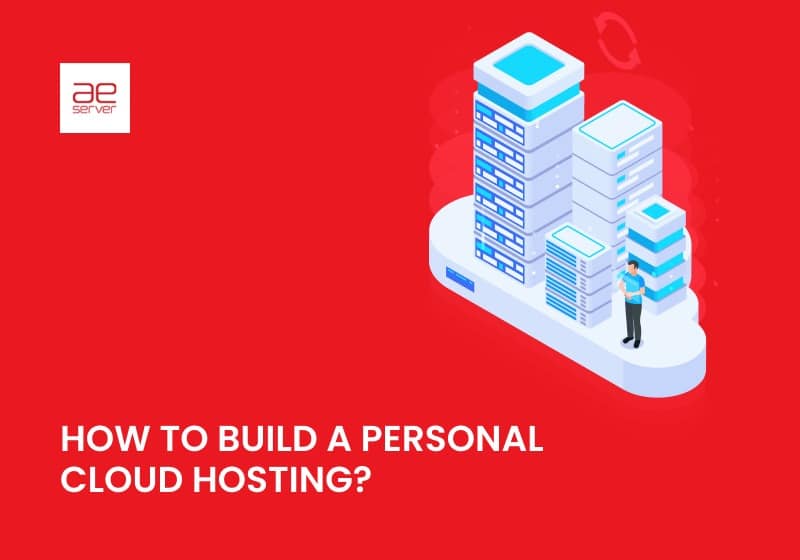
Web Hosting Systems: Services, Types, and More
In today’s digital world, hosting systems play a key role. They help in shaping the internet landscape. And our article is dedicated to the complex field of hosting. It is an indispensable guide for beginners and enthusiasts alike. Are you aiming to create a powerful online presence? Then understanding the intricacies of web hosting services becomes paramount.
This study will help you understand the variety of web hosting services. You will be able to identify the features and benefits of each. From shared hosting and virtual private servers to dedicated hosting and cloud solutions. This text sheds light on the inherent advantages and limitations of each system.
Whether you’re an aspiring web developer, a business owner looking for the perfect hosting solution, or simply intrigued by the inner workings of the digital world, Hosting Systems: Services, Types, and More is your key to unraveling the dynamic field of web hosting.
Understanding Web Hosting System
Want to navigate the digital world? Then you need to have an understanding of hosting systems. It’s a rather intricate web of technology. It lies at the heart of any online presence. Next, we will take you on a journey through the complex mechanisms. They will ensure that your websites are available and functional.
At its core, hosting involves the provision of disk space. It provides computing resources and network connectivity. It will allow you to host websites and applications. As we go deeper, we will uncover various types of web hosting. We will look at the role of virtualization in shaping modern hosting solutions. They allow companies and individuals to optimize the use of resources.
Buckle up to explore the dynamic interplay of hardware, software, and network protocols. You’ll be able to decipher the nuances of server management, security protocols, and performance optimization. We’ll help you make informed decisions in the digital world. After all, reliable hosting is the cornerstone of a successful online business here.
Web Hosting Services
Website hosting for businesses provides infrastructure and technology. These are what you need to access websites on the Internet. They offer various services to ensure a smooth online presence and functionality. These include server space allocation, where websites’ files and data are stored.
Bandwidth and data transfer services enable efficient data flow between the website and visitors. Domain registration and management facilitate the acquisition and maintenance of unique web addresses. Email hosting ensures professional communication through personalized email addresses.
In addition, hosting services are often offered:
- Website creation tools
- Content management systems
- Security features such as SSL certificates
- Technical support to resolve problems and ensure optimal performance
Combining these services allows you to create, manage, and maintain an online presence. You will be able to cater to various website needs and sizes.
Web Hosting Features
Hosting features constitute the vital elements that shape the performance of websites. We will look at the main web hosting features. These are the ones that differentiate the various hosting services. It will allow users to make informed decisions depending on their specific requirements.
- Storage Space. The amount of disk space is the cornerstone of any hosting plan. It defines the data, files, and content the server can store. Sufficient storage space is necessary to accommodate website assets, databases, and multimedia files.
- Bandwidth. Bandwidth determines the amount of data. You can transfer them between the server and the user’s browsers. Sufficient bandwidth ensures a smooth user experience. You’ll get fast load times and uninterrupted access even during traffic spikes.
- Domain Hosting. This web hosting feature lets users link their websites to custom domain names. It increases brand recognition and accessibility.
- Email Hosting. You can get professional communication provided by email hosting. It allows users to create custom email addresses associated with their domain.
- Database Support. Hosting plans often include database services such as MySQL or PostgreSQL. These are necessary for storing and managing dynamic site content.
- Control Panels. Intuitive control panels such as cPanel or Plesk. They provide users with a convenient interface to manage server settings. As well as manage domain configuration and site features.
- Security Features. Robust security features protect sites from potential threats. Web hosting system builds user confidence.
- Backup and Restore. Provide scheduled backups and one-click restores to prevent data loss and facilitate recovery.
- Technical Support. A responsive support team provides prompt troubleshooting assistance.
- Operating System. Hosting options often include a choice of operating systems. Each meets different software and development requirements.
A thorough understanding of these basic features will allow you to choose the perfect hosting service. It will meet your goals, budget, and technical requirements. It will ultimately contribute to a reliable and successful online presence.
Web Hosting Content Management
Effective content management is at the heart of successful hosting. It will allow users to create, organize and update their digital content. Next, we will look at the integral role of web hosting content. You will learn how it allows effectively presenting their information online.
- Content Creation. A robust content management system (CMS) facilitates the creation of web pages, blog posts, images, and multimedia content without requiring extensive coding knowledge. It empowers users to generate engaging and visually appealing content. It resonates with their target audience.
- Organization and Structure. CMS platforms allow users to categorize the content. You can structure it, creating convenient navigation for visitors. Organized content enhances the user experience. It makes it easier to find the information you need.
- Editing and Collaboration. Web hosting services have integrated content management features. It allows multiple users to work together to create and edit content. It promotes effective collaboration. And it ensures that the information on the site is accurate and up to date.
- Customization and Templates. CMS platforms offer many customizable templates. It is how they allow users to personalize the look and feel of their websites. It ensures a company has a unique, branded online presence that matches its vision.
- SEO Optimization. Effective content management includes built-in tools or plugins. They facilitate search engine optimization (SEO). It helps to improve the visibility of a website and increase its ranking in search engines.
- Responsive Design. In our world, we have an increase in the use of mobile devices. Therefore, content management systems often focus on responsive design. It ensures the smooth adaptation of websites to different screen sizes and devices.
- E-Commerce Integration. For businesses, content management systems can integrate e-commerce features. It allows you to create online stores, product listings, and secure payment gateways.
- Regular Updates. Content management systems simplify the process of updating and maintaining a website. Regular updates enhance security, performance, and user experience.
Web hosting content allows users to create and manage their online content effortlessly. It enables them to showcase their brand dynamically and effectively. You will be able to share information and interact with your audience.
What is Website Hosting?
So, finally, you and I have come to the point of discussing what website hosting is. Website hosting is a basic service. It allows individuals, businesses, and organizations to make their websites available online. It involves the hosting provider providing server space. And they also provide computing resources and network connectivity. It allows you to store the website’s files, data, and content. You provide access to the data to users all over the world.
The user enters the domain name of the website into the browser. Then, the browser sends a request to the hosting server where the website is stored. The server then receives the necessary files and data. It quickly delivers them to the user’s browser. And as a result, the user sees the site on his screen.
Web hosting comes in different types. We will discuss each of them in detail below. You will learn what they have differences from each other and which option is better for you.
Effective website hosting for businesses provides 24/7 access to them. It ensures a smooth and reliable user experience. It includes aspects such as:
- Server management
- Security measures
- Data backup
- Technical support
These contribute to the performance and functionality of sites on the Internet.
Website Hosting for Business
Website hosting plays a key role in building a digital presence. And it is influential in the success of businesses in today’s interconnected world. Business hosting encompasses a variety of features and aspects. These directly impact a company’s brand, customer interaction, and overall growth. Let’s take a closer look at these aspects:
- Reliable Accessibility. Reliable website hosting provides 24/7 access to a company’s website. It gives potential customers uninterrupted access to information, products, and services. Website downtime can lead to missed opportunities and damage a company’s reputation.
- Performance and Speed. Fast-loading websites are crucial for retaining visitors and minimizing bounce rates. Optimal website hosting for business enhances page load times. It contributes to a positive user experience and improved search engine rankings.
- Scalability. Businesses often experience fluctuations in website traffic. Scalable hosting solutions allow you to rebuild according to traffic spikes seamlessly. And you won’t get a performance hit.
- Security. Protecting sensitive customer data is paramount. Web hosting systems provide reliable security measures. It allows you to secure both the company and its customers.
- E-Commerce Integration. For online sales companies, website hosting supports e-commerce features. It allows for secure transactions, product listings, and inventory management.
- Customization and Branding. Web hosting features allow for flexible website design, layout, and feature customization.
- Search Engine Optimization (SEO). Hosting services may offer SEO tools or integration. It helps to improve the visibility of the business in search engine results. It helps in attracting organic traffic and potential customers.
- Data Backups and Recovery. Backing up your data regularly will ensure that your information is protected. You will also be able to restore it in case of data loss.
- Technical Support. Web hosting systems often include specialized technical support. It allows you to quickly solve any problems, minimizing disruptions in the work of the site.
Choosing the right website hosting for business is a strategic decision. It directly affects your company’s online presence. Invest in reliable and feature-rich hosting solutions. It is how companies build a strong digital foundation. It increases their competitiveness and contributes to long-term success.
Types of Web Hosting
Surely you have heard before that there are different types of web hosting. Each of these types is designed to meet specific needs. Also, they often meet different budgets and technical requirements. Understanding the different types is a must. It will help you choose the right website or internet project solution.
Choosing the right type of hosting depends on factors such as:
- Size of the website
- Expected traffic
- Technical expertise
- Growth potential
Each type of web hosting has its advantages. Therefore, before making a decision, it is important to assess your needs. We have prepared a list to help you:
Shared Hosting
It is an entry-level option where websites share resources on a single server. It’s cost-effective and suitable for small websites or personal blogs. However, resource sharing can lead to performance limitations during traffic spikes.
Virtual Private Server (VPS) Hosting
VPS hosting provides users with dedicated resources in a virtualized environment. This web hosting provides more features to control, customize and scale. It makes it ideal for growing websites and small businesses.
Dedicated Hosting
With dedicated hosting, you get an entire physical server dedicated to your website. It provides maximum control, performance, and security. This makes it suitable for large enterprises and e-commerce sites. It will be good for applications with high resource requirements.
Cloud Hosting
Cloud hosting utilizes a network of interconnected virtual servers to distribute resources. It provides scalability, flexibility, and redundancy. It makes it easy to adjust resources based on traffic fluctuations. It is great for sites with varying resource needs.
ECommerce Hosting
Designed for online stores, e-commerce hosting offers features like:
- Secure payment gateways
- Shopping carts
- And inventory management tools
It ensures smooth and secure transactions for online shoppers.
Reseller Hosting
Reseller hosting allows individuals or businesses to sell hosting services to their clients. You purchase a hosting plan from a larger provider. And then allocate resources to your clients as needed.
Managed Hosting
With managed web hosting services, the provider manages all the server management. We can also include upgrades, security, and maintenance. This option suits those who want to manage the server without much effort.
Colocation Hosting
With colocation hosting, you provide your physical server and house it in a data center. The data center provides infrastructure, security, and network connectivity. And you retain control of your server.
Bottom Line
In the dynamic landscape of web hosting, selecting the right type is paramount. The choice of web hosting system you should coordinate with the needs, size, and aspirations of your website. So you can ensure a smooth web presence.
The right web hosting is the foundation for successful and effective digital development. But where to get good web hosting content? We suggest you pay attention to our Web Hosting Services in UAE. Our company AEserver will help your business in improving your online presence. We offer several web hosting options to help you. So rather consider our offer and contact us!
Frequently Asked Question
-
What is the difference between web hosting and domain registration?
Web hosting provides server space and resources to store website files. And domain registration provides a unique web address.
-
Can I switch my web hosting provider without affecting my website?
Yes, you can change your web hosting provider. You need to migrate your website files and databases. It will ensure a smooth transition with minimal downtime.
-
What security measures should I consider in web hosting?
To protect your site from cyber threats, prioritize SSL certificates, regular backups, strong firewalls, malware scanning, and updates.
-
How many web hosting resources do I need for my website?
Estimate resource needs based on website size, traffic, and functionality. Start with shared hosting, VPS, or dedicated servers as per requirements.




